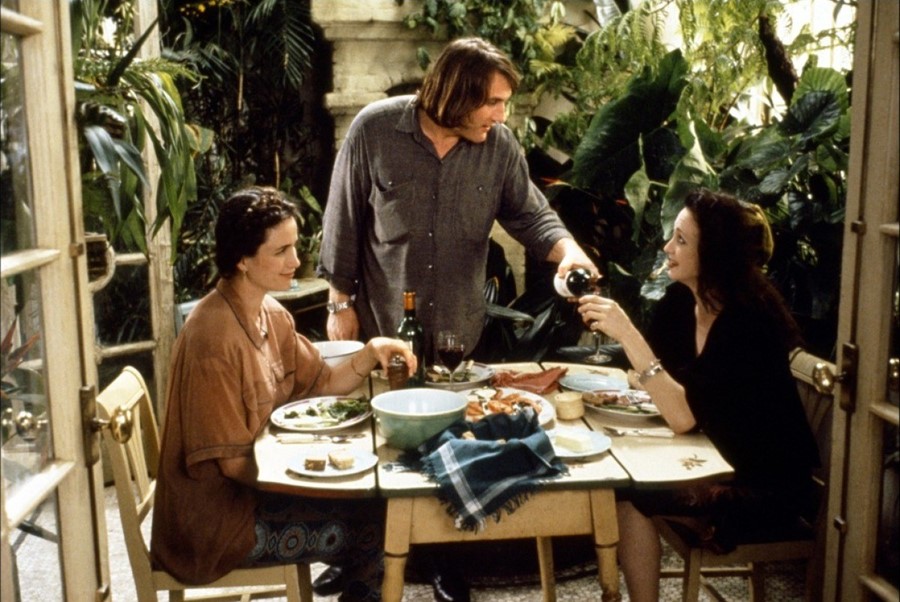Let this 1991 rom-com starring Andie MacDowell guide your inner horticulturalist this weekend
In the wake of the news that Donald Trump has renewed his clamp down on migrants to the United States, Peter Weir’s 1991 film, Green Card feels more relevant than ever. Set in a similar period of government duress, we’re introduced to New Yorker Brontë Parrish (Andie MacDowell) who enters into a sham marriage to help an “illegal alien” obtain a green card, and acquire her dream greenhouse. When immigration calls to check up on the newlyweds, Parrish finds herself confronted with her French husband, George Fauré (Gérard Depardieu), and in order to save him – and her new abode – the two strangers must pretend to be man and wife for a week. What unfolds is a tender portrait of two people overcoming differences, and learning to love as they learn about each other. However, the wisdom this film has to offer does not stop there...
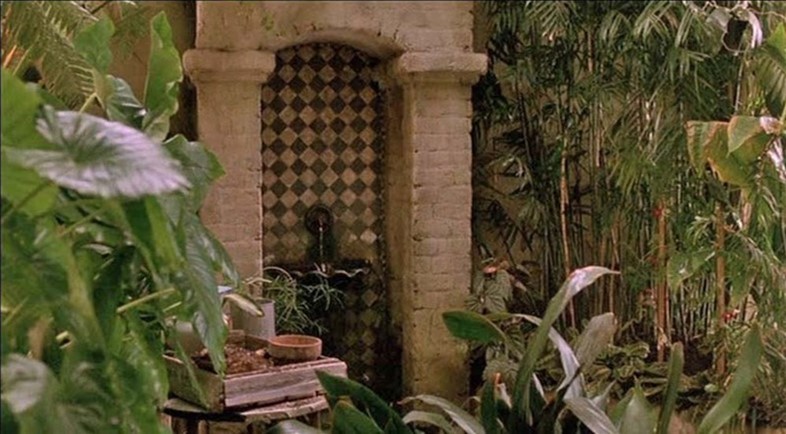
1. Ambition isn’t a bad thing
Brontë works as a guerrilla gardener, and wants to get married so she can live in an apartment with a huge greenhouse and private balcony that’s only on the market for a “nice young couple”. She’s a horticulturalist who knows exactly what she wants and won’t let a little thing like not having a husband stand between her and her dream. She’s proof that thinking outside the box, improvising, and being willing to take chances really can pay off. After all what’s a little legal binding when it means you can become the owner of a large solarium?
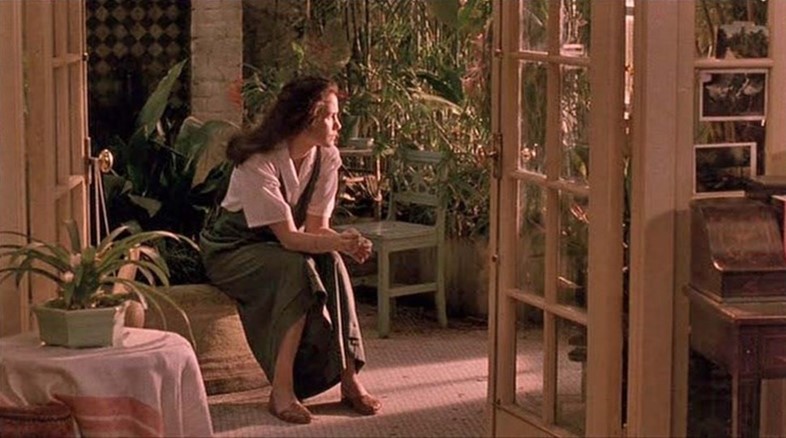
2. Don’t be afraid to indulge your passions
“You like plants,” George spits at Brontë, “more than people” – and for most of the film it’s true. Brontë locks herself away in her own personalised Eden. Her quest for personal freedom and expression manifests itself in the horticultural world she curates and grows around her. She wears a button-down pastel peach shirt, an orchid pin, sits against floral pink wallpaper, hangs framed botanical prints on the walls, and tends flower boxes in floral flannel pyjamas. Everything in her apartment comes back to her sense of self, defined through her work and her love of gardening; from her straw hat down to her dusty pink telephone.
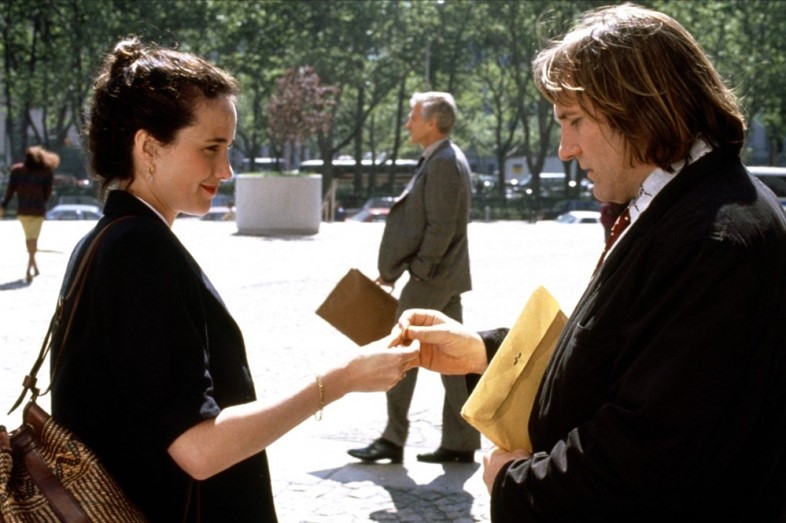
3. Sometimes you just have to let your hair down
Plaits, tightly drawn ponytails, and hairpins: Brontë’s hair reflects her personality. She’s sweet and practical; highly strung, but endearingly so. George’s hair is shaggy and a little too long, just another facet of his unruly persona that is out of Brontë’s control. Alone in her apartment, Brontë wanders around with her hair loose, at ease with her botanical companions. In the outside world she’s rarely this relaxed. It’s only when dressed up to go out to a fancy dinner that – on George’s suggestion – she finally lets her hair down outside the confines of her apartment. As soon as she does this, Brontë visibly loosens up: she’s more relaxed, and her attitude towards George and his tousled mane changes entirely.
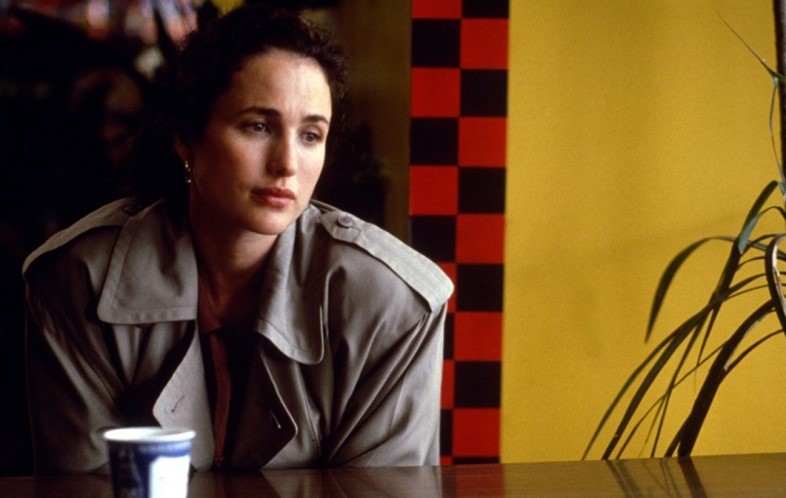
4. Dress for the job you want
The power of adapting to one’s environment is infinite. Working on the streets of New York, Brontë dons brown desert boots, green cargo pants, and pocketed navy utility shirts; she’s the image of practicality. When invited to an upmarket New York dinner with the chance to woo potential plant donors (or to testify for her fake marriage to immigration officials) she knows the importance of being able to make a good impression. Gone are the shapeless green shifts she wears in her downtime and instead out come power blazers, a blue satin wrap-top, matte red lipstick and gold drop earrings. Never forget that playing to one’s sartorial strengths can be key for survival – and success.
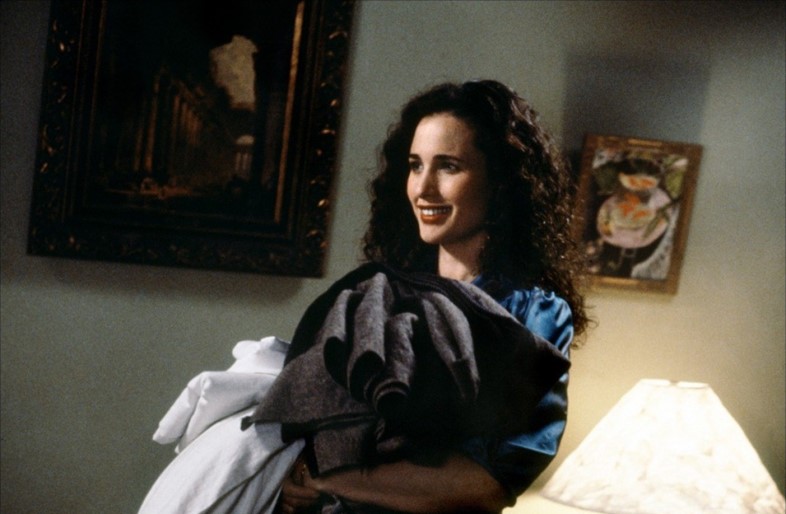
5. You can’t plan love
Few people fall in love the way they plan to. At the beginning of the film Brontë is dating a sensible, impeccably dull, ‘nice’ man. A fellow gardener and a vegetarian, he’s as conscious about the environment as she is. On paper he’s perfect, but when Brontë’s life collides with George, what she learns is that there’s no formula for her feelings. George is the opposite of what she’s looking for – but that’s why their personalities compliment each other so well. Throughout the film Brontë learns that love can be found in the most unexpected of places but also, like her beloved plants, love can grow. By the end (spoiler alert!) she gives up the sanctuary of her precious greenhouse and tending her plants, daring to pursue and tend to something far greater: her life.
